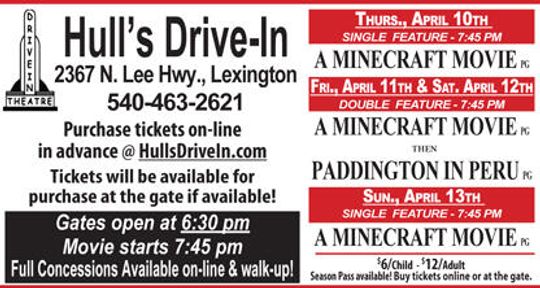Editor's note: The following letter was written by Lexington resident Bob Hopkins, and is the longer version of the letter that appeared in the April 17 print edition.
When it comes to grades K-12, “old fashioned” is in many ways better than what we have today. How we got here has occurred very slowly by well-meaning educators but let’s go back a few decades and remember how it used to be.
The two men who I look up to the most are my father and the principal of my public grammar school in Spring Lake, NJ. I went to this school from kindergarten through 8th grade and can still remember the names of all the teachers. Our principal, nine teachers, a gym/English grammar teacher/pianist, plus two janitors comprised the staff. These thirteen people were responsible for the education of approximately 200 students. There was no union or political involvement. The principal coached football, basketball and baseball. We also had a part- time registered nurse who visited classrooms every day and a music teacher who came once or twice a week. The nurse would patch up our skinned knees but more importantly if kids were outwardly sick, call a parent to come pick up their child before the ailment spreads to other children. These ailments went from a bad cough to measles, chicken pox and mumps. We had rules with penalties if they were broken like having to stand alone in the hallway for five or ten minutes, having to stay after school to work washing the blackboards or whatever else the teacher needed help with. In addition to the other students observing that rule breaking had consequences, the parents would also ask why you got home a half hour late. Once in first grade I skipped school to play with another kid who was home in quarantine with chicken pox. I got caught and was sent to the principal’s office. I waited there as he called my mother and told her of my misadventure. I was spanked when I got home but never played hooky again. I also caught chicken pox.
A typical day in this public school went as follows: get inside, hang up coats, put books away in assigned desks, wait for attendance to be taken and line up to go to the auditorium. All classes except kindergarten and first grade went into their assigned seating in the school auditorium. The principal was the leader and each child had two song books, one yellow and one green. To start, the principal would say, open your yellow book to a page number to sing either a fun song for holiday seasons, a patriotic song, a religious song or a folk song. After singing we would be asked to stand for the reading of a parable from the bible followed by saying the Lord’s Prayer. Then we would sing another song followed by the Pledge of Allegiance then a third song followed with any announcements of the day and return to our classrooms. This daily ritual was fun, we learned songs, patriotism and a bit of the right and wrongs of life.
Back in the classroom we studied math, English comprehension and composition, reading, penmanship, history, geography, civics and art. There were school plays that everyone participated in and an annual “exhibition” of good test or homework papers, art and other schoolwork that deserved to be displayed on posterboards in the upper and lower hallways. The exhibition was a big event where students wanted to have their works shown to parents as well as other students.
We respected our teachers and our principal. We referred to them by their names, Miss, Mrs. or Mr. or by Mam or Sir. Parents taught manors and teachers reinforced the parents. The principal visited every classroom at least once a day. Sometimes he would tell us stories about Gettysburg or our Founding Fathers or the Boston Tea Party and we loved to hear him talk. He was like a father to us…kind, loving, a Harvard graduate, and wore a different necktie every day secured by a Gordian Knot gold tie tack. If the nurse was not there, he would patch up our cuts and scrapes in his office with gentle hands. He was respected by the teachers as well as the students for his calm and strict but loving discipline.
We got monthly report cards that had to be signed by both parents, if possible. There were grades for academics as well as subjective things like, conduct, paying attention, class participation, courtesy and attitude. These were the behavior issues that went on the report card and usually paralleled the academic grades. Parents could see if their child was trying or needed correctional guidance in those areas.
Our football and basketball uniforms were hand-me-downs. There were no baseball uniforms. Football outfits had shoulder pads, pants and an old leather helmet while the wool basketball uniforms were itchy, and some had moth holes. The baseball bats were well worn wood and the balls had black “tire” tape to keep them together. No one complained because anyone who got a uniform felt as though he was special.
In class, everyone dressed in casual but clean clothes. Parents made breakfast for their children and a brown bag sandwich lunch if they lived too far to go home for lunch. Schools did not have the expense and burden of providing meals for the students. Even lesser affluent parents had time to make breakfast and a sandwich.
Holidays were special for all grades. After lunch on Halloween every child wore a costume…hand-me-down or homemade. Within each class we had to guess who was behind the masks and voted for someone who had the best costume that year. Candy corn and orange and black dominated the afternoon. Trick or treating was common but the best place in town was at our principal’s home where kids lined up outside for their turn to see him and his wife, Molly. Only about five children were allowed inside at one time because the principal tried to guess who was behind the mask and then congratulated each child for having a good disguise and costume. Then each was rewarded with a small box of Nabisco cookies, an apple and a DIME…the best treat in the whole town.
At Christmas every classroom had a tree and lots of decorations. In the auditorium we sang Christmas carols and Santa made an appearance in every classroom to distribute a small bag of sweets. A Christmas play on the auditorium stage was the big event because children of all ages got to perform or be part of the Christmas choir.
Valentine’s Day afternoon was where we exchanged cards and had a small party. For some it was a first chance to let someone of the opposite sex know they were special.
On St. Patrick’s Day we always had entertainment in the auditorium. There was usually an accordionist who came out from behind a prop painted with, “O’Reilly’s Pig Pen”. Then, at some point a lady dressed in Irish garb sang Irish songs and danced with the accordionist. We were all asked the day before to wear something green and we did.
There were other entertainment days in the auditorium, and they were always a surprise. Sometimes a magician would amaze us with his magic and other times a ventriloquist would make us laugh with his and his dummy’s jokes. Our principal enjoyed watching his two hundred children smile, clap and cheer.
Graduation was a big event. There was a standard play pertaining to graduation and the actors were from the top 10% in academics. Every year was the same except for the participants and small prizes were given to each graduate. The auditorium was full of students and parents and all were dressed for the occasion. The week after graduation there was a dinner hosted by the school at one of the local hotels. One year the boys had to wear white pants, a blue sport coat and tie and the next year the outfit was blue pants and a white sport coat and tie. Each girl wore a fancy gown, and they were given a corsage to make them look even more grown up and pretty. This was the first dinner banquet for us students and was hosted by our principal.
The principal’s name was Harry W. Mountz. He loved children and he was looked up to by his students and teachers. He led by example with his knowledge, appearance, concern for academics, kindness and interest in providing us with a first-class education. He became a part of our lives. Not all of us went to college, some went into the military, some never left town and some became wealthy but we were exposed to a role model who gave us discipline, fun and the encouragement to learn and do the right thing, taught by high quality teachers…the old fashioned way.
The old-fashioned way means: no phones in school, no sleeping in class, no disrespect towards teachers or other students, no tardiness or excessive absences, public praise for good deeds and grades and private warnings for those who underperform. No promotion to the next grade until the student passes all requirements. Schools need rules and consequences for those who do not abide. Principals and teachers need public backing. Not every kid should get a trophy. Children need to learn the hard way sometimes. The use of unlawful drugs should be demonized in classes with graphic examples of the destructiveness it causes and those who use those drugs should be looked down upon. Sex education matters do not belong in public schools…parents have that responsibility. Educators should teach the basics of education not opinionated social issues fostered by politicians.
Obviously, more money is not the answer. Change back to some of the tried-and-true methods. It can be done.
Robert Hopkins
Lexington, Va.




